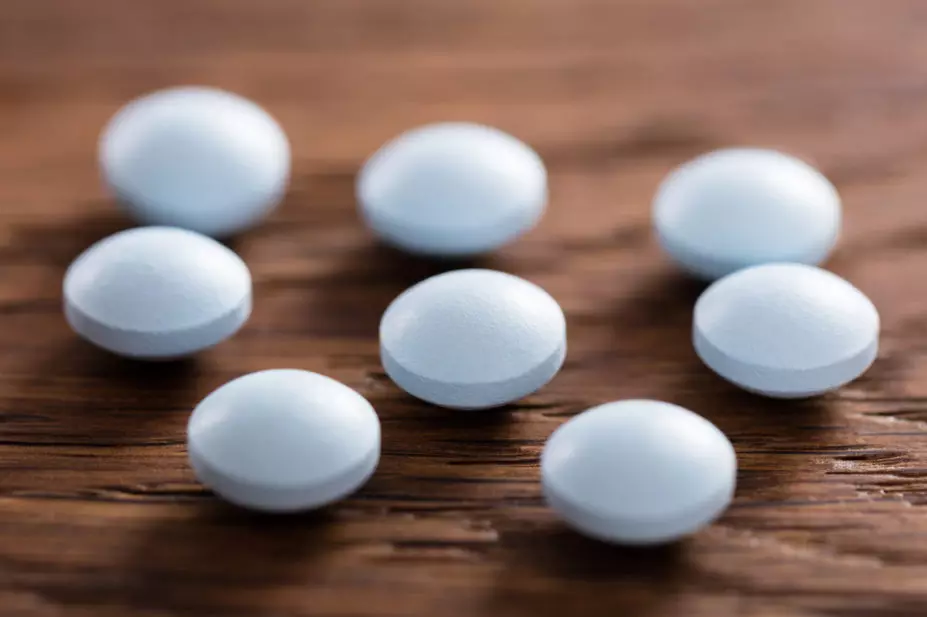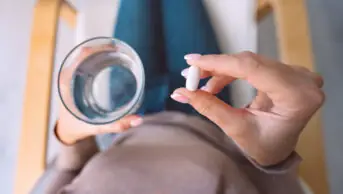
Shutterstock.com
MDMA-assisted therapy is highly effective and safe in those suffering from severe post-traumatic stress disorder (PTSD), a study presented at the spring 2022 meeting of the American Chemical Society (ACS) has demonstrated.
According to the authors, this is the first phase III, randomised, double-blind, placebo-controlled study to assess the efficacy and safety of MDMA-assisted therapy for the treatment of severe PTSD and could pave the way for approval of the treatment by the United States Food and Drug Administration (FDA) as early as 2023.
In the study, a flexible dose of MDMA or placebo was administered to 89 participants under direct observation and over three treatment sessions, in conjunction with psychotherapy.
The treatment population included those with common comorbidities, including depression, childhood trauma and a history of alcohol and substance use disorders.
The optimal oral dosage of MDMA, as determined by phase II studies, consisted of a full dose, followed by a half dose an hour later. The participants then attended an eight-hour therapy session after the half dose. This process was then repeated twice, a month apart, in addition to weekly therapy sessions.
A change in PTSD symptoms and functional impairment was assessed at baseline, and then subsequently following each treatment session, using the Clinician-Administered PTSD Scale for DSM-5 (CAPS-5) and Sheehan Disability Scale (SDS), respectively.
The researchers found that MDMA plus therapy significantly improved participants’ CAPS-5 score when compared to placebo (d = 0.91, 95% confidence interval [CI] 0.44, 1.37) and significantly decreased the SDS total score (d = 0.43, 95% CI = -0.01, 0.88).
Overall, the mean change in CAPS-5 scores was -24.4 in the MDMA plus therapy group (n=42) and -13.9 in the placebo plus therapy group (n=37). In addition, side effects of MDMA, such as jaw clenching and nausea, were minimal, and there were no signs of addiction.
The researchers concluded that, compared to placebo plus therapy, not only was MDMA-assisted therapy highly efficacious in those suffering from severe PTSD but it was safe and well tolerated, even in those with comorbidities.
“The results presented here will form the basis for marketing authorisation applications worldwide and suggest that MDMA merits rapid clinical development for treatment of PTSD,” they added.
“MDMA is really interesting because it’s an empathogen,” said Jennifer Mitchell, professor in the departments of neurology and psychiatry at the University of California, San Francisco, and principal investigator of the study.
“It causes the release of oxytocin in the brain, which creates feelings of trust and closeness that can really help in a therapeutic setting.”
However, despite the study’s promising results, Mitchell stressed that people with PTSD should not try to self-medicate with MDMA.
“If MDMA is decriminalised, that doesn’t mean it’s safe,” she said. “It can be a very powerful tool, but it needs to have the right dose in the right context with the right support system.”
Commenting on the study, Colin Davidson, a neuropharmacologist and neurochemist at the University of Central Lancashire, said that the “only surprise” about the finding that MDMA might be useful in the treatment of PTSD was that it had taken so long for a phase III, randomised, controlled trial to be completed.
“The idea that MDMA may be useful in PTSD has been around for many years,” he said.
“Given the importance of the doctor-patient relationship in psychotherapy, it was hypothesised that MDMA may not only strengthen the therapeutic alliance but also allow the patient to open up more about their trauma.
“The present study clearly shows that MDMA works better than placebo when paired with psychotherapy.”
Davidson added that it was “disappointing” that the clinical utility of MDMA was only just being realised.
“As a scheduled class A drug in the UK, its use in clinical trials needs additional paperwork, despite it being considered one of the least dangerous drugs of abuse.
“The well-known pharmacology of MDMA shows that it potentiates 5-HT and dopamine levels, similar to some of the tricyclic antidepressants. Given its limited dangers … and positive effects in PTSD, perhaps its scheduling needs reviewing.
“These results are exciting as they could open up the use of other drugs of abuse as medications; for example, there is much work being done on ketamine for depression, hallucinogens for psychiatric disorders and cannabinoids for a variety of illnesses,” he added.
The researchers are now analysing the long-term data from the phase III trial in order to assess how long the treatment might last.


